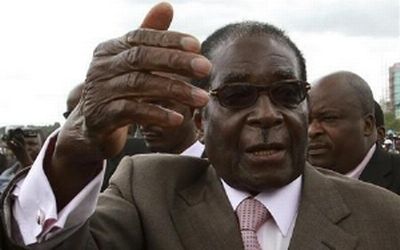
BULAWAYO visual artist Owen Maseko has broken his silence about his controversial arrest in 2010 facing charges of undermining the authority of President Robert Mugabe by exhibiting paintings depicting the 1980s Matabeleland and the Midlands Gukurahundi massacres perpetrated by the 5 Brigade, at the National Art Gallery in Bulawayo. LUYANDUHLOBO MAKWATI OWN CORRESPONDENT
Maseko was charged with undermining the authority of, or insulting the president and causing offence to persons of a particular race or religion. Following his arrest, Maseko’s paintings, which portrayed the torture and massacres of innocent civilians by soldiers, were removed from the gallery.
Maseko said he suffered financial losses because partners and sponsors deserted him after he was arrested for the exhibition. “Since that time, I have been failing to do my work properly because a lot of people have been treating me with suspicion,” Maseko said.
“I even lost partners and sponsors such as the Art Gallery because people think that my work is controversial and creates problems for them.”
Maseko said he would not be intimidated into watering down his artwork because of arrests.
“I will continue with my work. My matter will be going back to court soon. I think this is the final stage of the matter where judgment will be passed.
“Whatever the outcome, I am an artist and will continue with my art for the rest of my life,” he said.
The Constituional Court recently ruled that some sections of the Criminal Law (Codification and Reform) Act Chapter 9.23 that deal with insulting the president are unconstitutional in a landmark ruling likely to see a mass withdrawal of similar cases which had flooded the courts.
- Chamisa under fire over US$120K donation
- Mavhunga puts DeMbare into Chibuku quarterfinals
- Pension funds bet on Cabora Bassa oilfields
- Councils defy govt fire tender directive
Keep Reading
The Zimbabwe Lawyers for Human Rights (ZLHR), which represented Maseko revealed that there were about 80 such cases being handled by the country’s courts.










